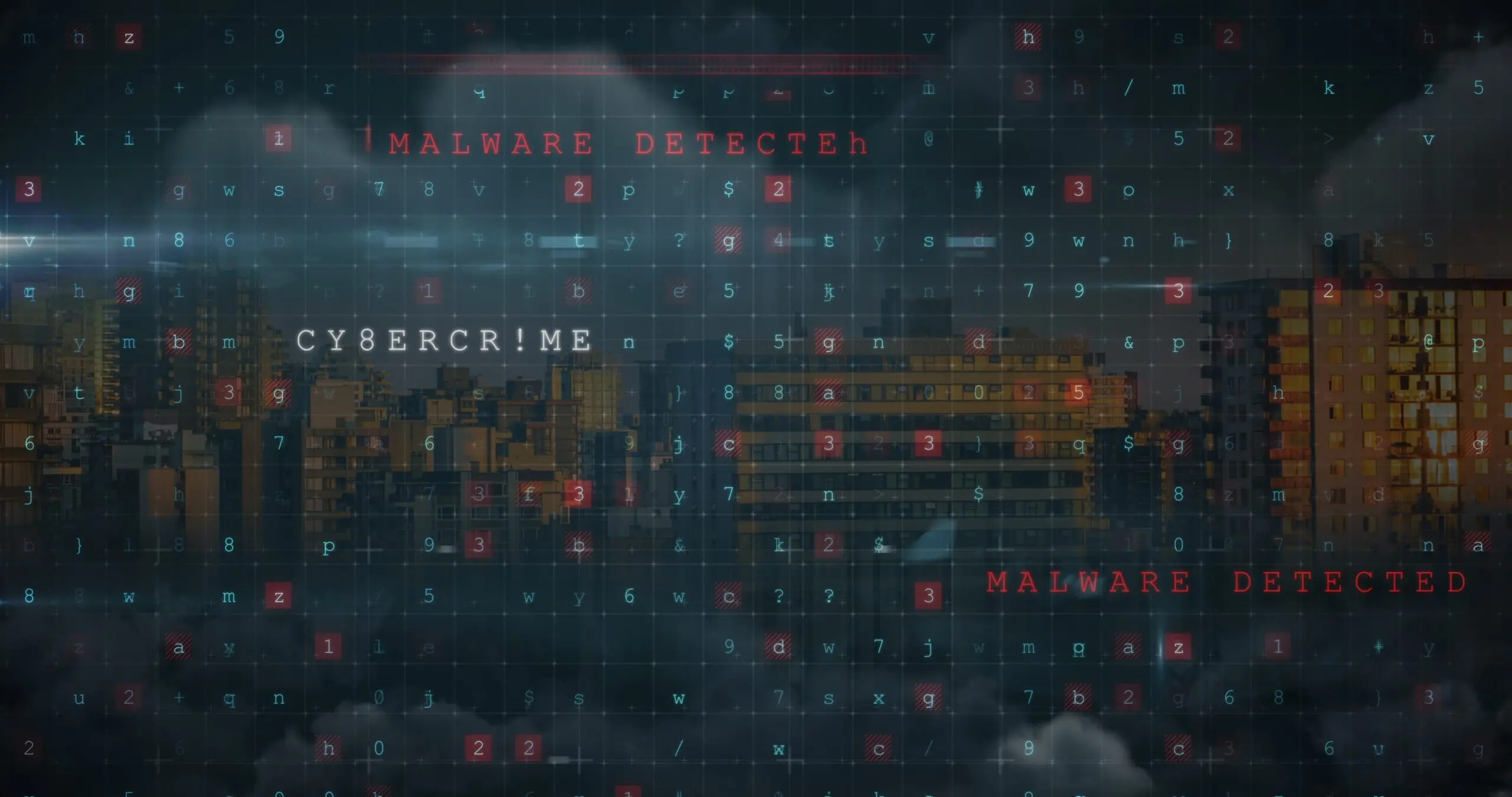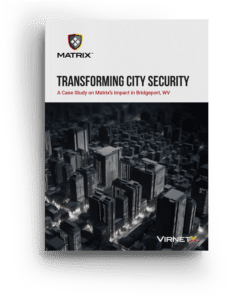
For municipalities, Baltimore remains a real and frightening example of what can nightmarishly unfold when a vicious cyber-attack hits a city.
In 2019, the city was victimized by a ransomware attack where hackers infiltrated the computer systems, encrypting sensitive data and demanding a ransom to restore access. As a result, Baltimore’s services were severely disrupted, with critical functions such as billing, email, and real estate transactions coming to a complete halt. The attack, of course, had significant consequences, costing the city millions in recovery efforts and negatively affecting the lives of residents.
Trending: Smaller Cities Are Falling Victim to Cyber Attacks
Fast forward to 2023, and municipalities of all sizes are more vulnerable to attacks than ever, with fire departments, police, water treatment plants, and other systems used to run cities being hit by hackers and organized cyber gangs.
The list of cities under 100,000 population is frighteningly long, devastating and comes with heavy consequences. Smaller municipalities nationwide are being hit by ruthless ransomware, leaving their infrastructure incapacitated and communities in chaos. A sampling of the cities that have been attacked since 2022 include:
- Spartanburg, South Carolina (population: 38,000)
- Lowell, Massachusetts (population:
- North Kingstown, Rhode Island (population: 26,000)
- Allen Park, Michigan (population: 28,000)
- Waynesboro, Virginia (population: 23,000)
- Lower Makefield Township, Pennsylvania (population: 33,000)
- Tomball, Texas (population: 13,000)
From city-wide website shutdowns to offline email systems, these incidents have sent shockwaves through their communities, exposing the vulnerability of municipalities that may have felt they were small enough to fly under hackers’ radar.
Your town could be the next target. Are you prepared?
As we chronicled in this blog on Cybers Mayhem and Municipalities: Helping to Protect Communities from Ransomware Attacks, municipalities are the perfect target for cyber thieves looking for a quick and lucrative score, and city leaders face several challenges in stopping them, including outdated legacy systems.
Now let’s explore the additional obstacles municipal leaders – big and small – face in their battles against these attacks and what can be done to overcome them.
Politics and Pressing Priorities
Because of a lack of prioritization and understanding, city leaders often struggle to persuade stakeholders to put cybersecurity front and center. Even with the number of cyber-attacks increasing, cyber threats have an abstract nature, making it challenging to rally support and resources. Limited resources and competing priorities also play a factor, and cities must juggle multiple pressing issues. Consequently, cybersecurity initiatives often take a backseat to other pressing matters, impeding the ability to invest in solid defense measures.
Bureaucratic Barriers
Complex decision-making processes also pose a significant challenge for municipalities regarding cybersecurity. Municipal decision-making often involves navigating complex bureaucratic structures, which can impede the timely implementation of cybersecurity measures. In some cases, multiple entities within the municipality, such as different departments or agencies, may be involved, making coordination and consensus-building difficult. This complexity can delay the adoption of necessary security measures and hinder the municipality’s ability to address cybersecurity threats effectively.
Balancing Public Access and Security
Balancing transparency and security are also critical challenges faced by cities when it comes to cybersecurity. Municipalities are responsible for maintaining transparency and openness in their operations, ensuring that citizens have access to relevant information. However, they must also protect sensitive information from cyber threats, including citizen data and critical infrastructure. Striking the right balance between transparency and security is a delicate task. Municipal leaders must implement robust security measures without compromising the openness and trust that citizens expect from their government. This challenge requires careful consideration of privacy concerns, legal requirements, and technological solutions to maintain security and transparency in the municipality’s operations.
Protecting Data Under a Cyber Siege
Municipalities face many obstacles when protecting their platforms and citizen data from cyber-attacks. One significant challenge is handling sensitive citizen data, and cities become attractive targets for cybercriminals as collectors and custodians of vast amounts of personal information. Safeguarding this data requires robust security measures and strict adherence to privacy regulations.
Solving the Privacy Puzzle
Compliance with privacy regulations is an additional layer of complexity for municipal leaders. Rules create a framework that municipalities must navigate to ensure they meet the necessary standards for data protection. They often require careful attention to detail and continuous monitoring.
Citizen Data and Privacy Concerns
Another crucial aspect is the delicate balance between data collection and privacy concerns. Municipalities rely on data collection for various public safety purposes, such as emergency response and urban planning. However, this can raise concerns among citizens regarding their privacy. Striking the right balance becomes essential to maintain public trust. Municipal leaders must demonstrate that data collection is done responsibly and concerning individual privacy rights.
Addressing public concerns is vital in maintaining trust in municipal institutions. Instances of data breaches or misuse of citizen data can significantly erode public trust and confidence. It falls upon municipal leaders to address these concerns promptly and transparently. Open communication, accountability, and proactive measures to rectify issues are crucial in restoring faith in the municipality’s commitment to privacy and data protection. By recognizing these challenges and proactively working to overcome them, municipal leaders can better protect their platforms and citizen data from cyber-attacks, ensuring the safety and privacy of their communities.
Financing CyberSecurity is a Juggling Act for State and Local Governments
One major challenge is the limited resources available to cities, and tight budgets make it difficult to allocate enough funds for cybersecurity initiatives. Implementing and maintaining decisive security steps can strain these limited resources, necessitating careful budget planning and prioritization.
Juggling immediate operational needs and long-term investments is essential. Municipalities must weigh short-term costs against the possible broader impact of poor cybersecurity on daily operations and citizens. Costs for security software, hardware upgrades, and employee training further strain the budget.
Intense competition between essential services like infrastructure, education, and healthcare exacerbates funding issues. Convincing stakeholders about the importance of cybersecurity can become a battle. City leaders must clearly and effectively communicate the risks and consequences of attacks, pointing out the need to prioritize cybersecurity alongside other services.
Strategies Municipal Leaders can Implement to Address the Challenges
To address these interconnected challenges effectively, here are several strategies for consideration:
- Educating stakeholders about cybersecurity’s impact on public safety and the city’s reputation builds political awareness, generating support and raising the chances of securing resources.
- Collaborate with regional and state entities. Partnering with other cities, regional organizations, and state agencies can provide access to share resources, knowledge, and best practices. Such collaboration eases the burden on individual municipalities and fosters a collective approach to cybersecurity.
- Develop clear cybersecurity policies and plans which guide municipal leaders and their teams. These frameworks address challenges, mitigate risks, outline goals, incident response protocols, and privacy protection measures.
- Seek external funding sources like grants, partnerships, and community initiatives for cybersecurity. These opportunities can close budget gaps and enable robust security investments.
- Prioritize employee training and awareness. Municipal leaders should invest in cybersecurity training and awareness programs for their employees. By equipping staff members with the necessary knowledge and skills, municipalities strengthen their defense against cyber threats.
- Explore public-private partnerships which offer valuable expertise, resources, and technologies for municipalities’ cybersecurity. Collaborating with private entities can help overcome budget constraints and enhance capabilities through shared resources and knowledge.
With these strategies, municipal leaders can navigate the challenges in protecting their platforms and citizen data from cyber-attacks. Through education, collaboration, policy development, external funding, employee training, and private-sector partnerships, municipalities can strengthen their cybersecurity defenses and safeguard the interests of their communities.
Matrix and Municipalities: A Winning Combination
A cost-effective platform, Matrix provides an additional layer of protection designed to prevent unauthorized access, enforce access policy controls, and enable real-time network management to secure your cloud or on-premises applications and help protect your network from malware, ransomware, and other cybersecurity threats. Zero-Trust Network Access protection and “single-click” technology are designed to make VirnetX products more effective at preventing cyber threats and more user-friendly than other available products and services.
With Matrix, municipalities can embrace advanced cybersecurity solutions for changing network requirements while leaving expensive, antiquated, and ineffective legacy systems behind.
Are you ready to enhance your municipality’s network security through Matrix? Discover the might and muscle of Matrix. Leave a languishing legacy in your rear-view mirror and defend your network and community against cybersecurity threats with Matrix’s modern Zero-Trust Network Access and “single-click” technology. Schedule your demo today!






